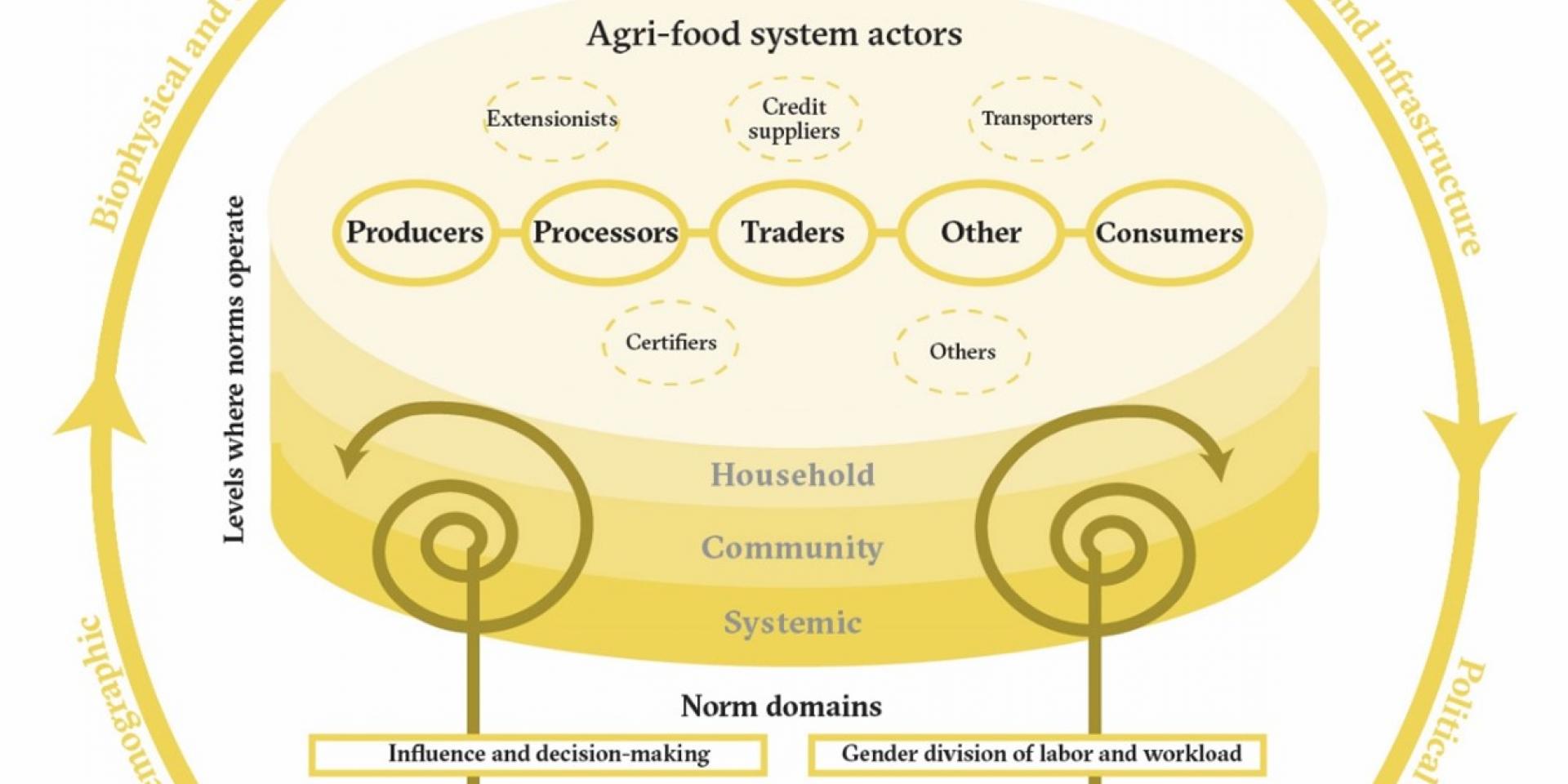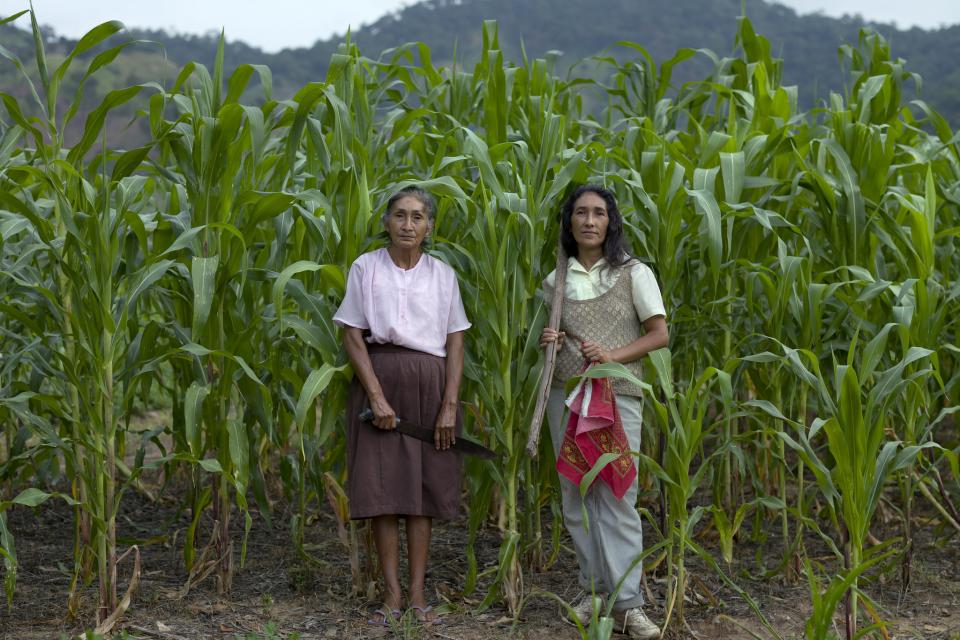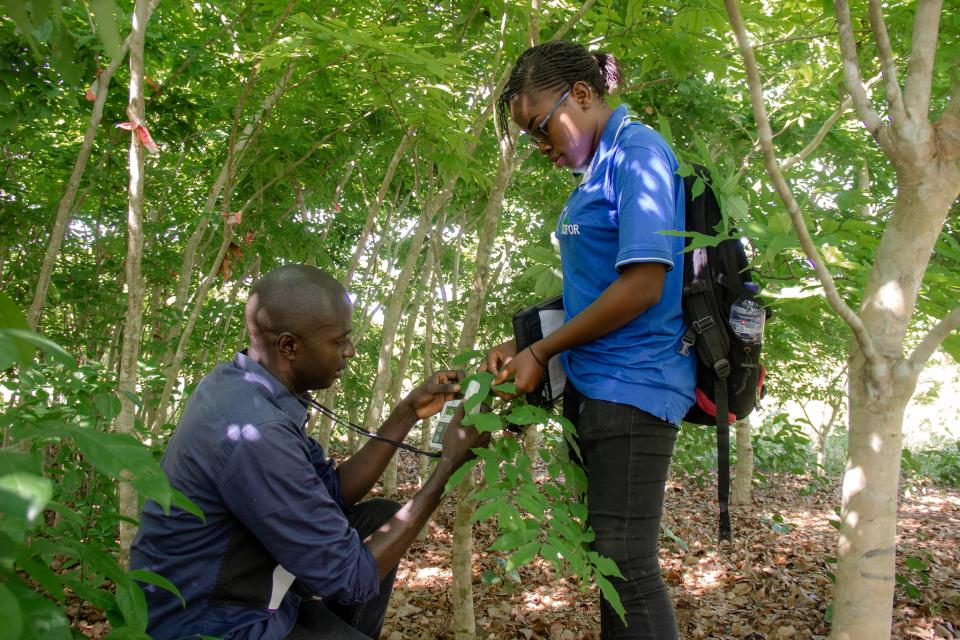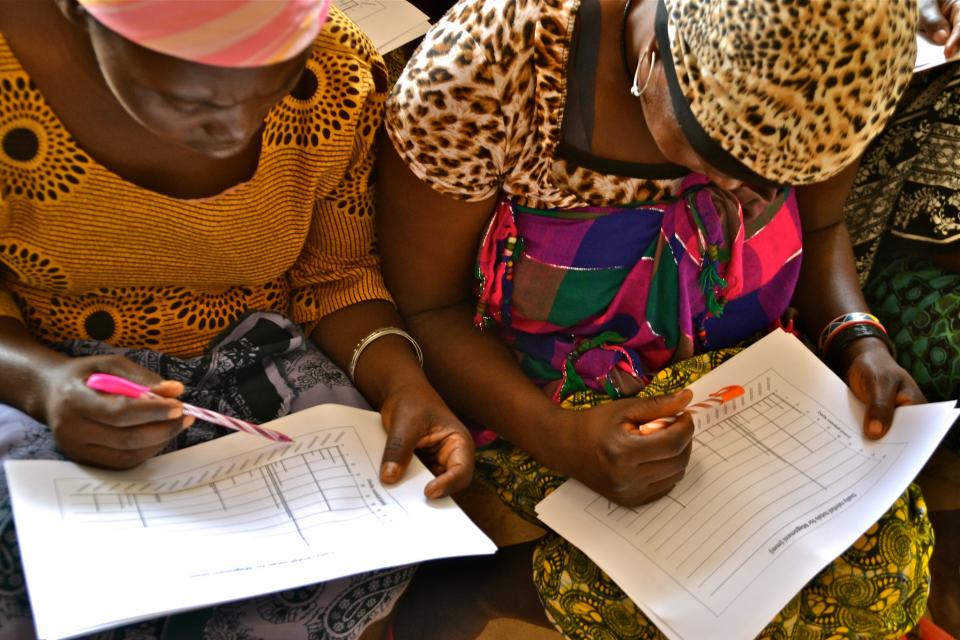Conceptualizing a multidimensional index to measure gendered social norms in agri-food systems
 Photo Credit: CGIAR.
Photo Credit: CGIAR.
Measuring multidimensional social norms in agri-food systems to take into account how norms operate at community (local) and systemic (structural) levels.
Gendered social norms in agri-food systems play a crucial role in influencing stakeholder behavior. Addressing the complexity of gendered social norms in agriculture requires a multifaceted approach and a collaborative effort. Researchers at IFPRI, IITA, FHI 360 and KIT Royal Tropical Institute are working together to develop a Multidimensional Social Norms in Agri-food Systems Index that will assess prevailing norms among actors with a focus on norms that constrain women’s economic resilience to climate change challenges. The development of this Index is an initiative of CGIAR’s HER+ Initiative – Harnessing Equality for Resilience in the Agri-food System – and aims to reduce normative constraints in agri-food systems.
The Index will be piloted later this year in HER+ focal countries and agri-food systems (e.g. Nigeria and Tanzania in cassava production, livestock and fisheries) to assess norms among men and women producers, processors, traders (amongst other agri-food system actors) and measure the extent to which they constrain women (and men) from coping with climate change impacts. The Index will help governments and development partners identify where gendered social norms are obstacles women’s economic resilience and inform the design of gender transformative approaches.


